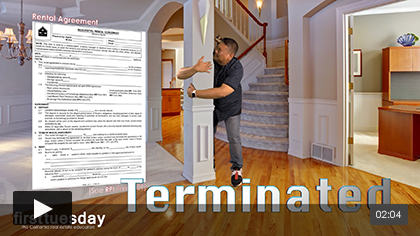Pricing of goods and services is everything as the housing recovery lumbers forward and homeowners return as sellers.
With the influx of sellers also comes an expansion of homes listed on the internet for sale without broker representation, known as for sale by owner (FSBO). With websites available to the public such as Zillow, Redfin and ForSaleByOwner.com, FSBO sellers are now able to successfully locate buyers and buyer’s agents by marketing their properties themselves.
ForSaleByOwner.com reports a 14% jump in FSBO listings over the past year while conventional MLS listings have been flat.
Agents traditionally list homes on the Multiple Listing Service (MLS) and benefit from its insider exclusivity. MLS sites are not transparent since access is only available to licensed subscribers to the MLS. However, publically transparent sites like Zillow with equal or greater property information reach millions of potential buyers and buyer’s agents, providing for the release of information by FSBO sellers—not MLS agents.
Related article
These sites also provide data enabling homeowners to price, market and go through the sales process with reasonable savvy – a practice once limited to MLS insiders only.
By cutting the seller’s agent out of the marketing equation, FSBO sellers expect to save on fees that normally go to listing brokers. Some sellers also argue that by selling on their own, they fetch a better price for their properties. The intuitive reasoning goes that agents instinctively jump at a lower price offer for a quick sale, while the seller holds out for a higher price.
What does this look like in application? Homes on the Stanford University campus marketed with a broker sold for 5.9% to 7.7% lower than FSBO sales, a Stanford University study found.
first tuesday insight
Real estate won’t be the only industry to have professionals replaced by robots, if that is the direction of technology. But is this where brokers and agents are headed? Not a chance. Only a live agent can aggressively market a property to locate a buyer — a website can’t.
However, the public’s opinion is beginning to turn against the agent’s role. Pricing of services is one of the issues. Another is competence of listing agents.
These sites indicate a growing number of homeowners view agents as replaceable. In the recent sales environment with the present steady 6% annual influx of sellers, sellers list a property and multiple buyers lunge at it causing the seller to wonder what purpose their agent served if the house sells itself.
Related article
Damage control: restoring public trust in real estate professionals
As we cycle into a buyer’s market without massive speculator participation, we will likely experience measurably fewer FSBOs as sellers suddenly find themselves in need of an expert to locate qualified buyers on their behalf.
Until then, this do-it-yourself trend isn’t limited to single family residences (SFRs). Sites like LoopNet and CoStar are attracting investor activity in nonresidential properties, cutting out agents and brokers there as well. The commercial market is more likely to grow in FSBOs than the SFR market, as income property owners are typically sophisticated investors capable of handling all aspects on either side of a transaction without an agent anywhere.
Agent advice
As a rise in FSBO sales plays out on public MLS websites, SFR buyers still operate largely through agents when looking for a home. However, as seller’s agents are replaced, how soon until homebuyers start to leave their agents as well?
As public-access MLS sites become more familiar and user-friendly, sellers and buyers experiences will go viral. Buyers and sellers will gladly share how they saved and how easy it was to locate a buyer or a home. This experience will cause more to jump on the bandwagon: a slippery slope.
For the seller, whether to employ an agent boils down to a cost-benefits analysis: are fees low enough to justify using an agent rather than doing the job of locating a buyer themselves? Demand sets the pricing of real estate related services for those ready to sell.
It also indicates homebuyers, like car buyers, frequently turn to the web before calling an agent.
If agents are to remain relevant they need to be where their potential clients are: online. The web has become the first place people go in their search for answers about goods, services and pricing, real estate or otherwise.
Related article
Zillow has a place where agents may create a profile for users to browse. Redfin has partnered with agents and brokers in many regions of the state. Even ForSaleByOwner.com has a place for agents and brokers to sign up and promote their services. All these mediums will get better as brokers and agents become willing to pay to play.
Related article
While these sites offer owners and buyers resources to bypass brokers, they also give agents and brokers tools to reach clients. The question is: will agents be savvy enough to pick them up or are they doomed to become the travel agent or car salesman of past?













